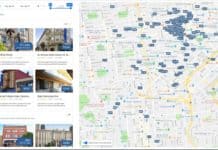Welcome to the new frontier of group travel—a landscape shaped by caution, compression and a fresh perspective on value, says a new analysis by BTN.
Behind the front desk, hotels are wrestling with stubborn post-pandemic expenses, a world of unpredictable events and clients whose wish lists keep evolving. Today’s savvy event planners need a backstage pass to truly understand what’s happening— what could be a permanent move toward selective, data-driven group demand management.
With persistent economic volatility on tap, labor shortages, inflation, energy costs and demand uncertainty is forcing hoteliers to rethink group strategies. Previously stable, high-value bookings now face last-minute cancellations from external factors like tariffs and geopolitical issues.
Small wonder hotels now exercise greater caution, enforcing cancellation policies and abandoning past leniency. With narrower margins, each booking must deliver both financial and operational value.
Hotels now use revenue management systems to assess group demand beyond pricing, determining if groups might displace more profitable bookings via simulations based on lead time, pickup pace, and forecasted demand. Planners seeking preferred rates must now demonstrate value beyond room blocks, emphasizing ancillary spend, repeat business, or operational efficiencies.
Shrunken Lead Times Shrinking Further
 Large event booking windows have shrunk from 12-18 months to 6-12 months, with smaller hotels facing an even greater squeeze of just 2-3 week lead times. These compressed timelines have created a perfect storm of limited availability, reduced flexibility, and challenges for accurate forecasting and operational planning.
Large event booking windows have shrunk from 12-18 months to 6-12 months, with smaller hotels facing an even greater squeeze of just 2-3 week lead times. These compressed timelines have created a perfect storm of limited availability, reduced flexibility, and challenges for accurate forecasting and operational planning.
Hotels now track RFP response times and conversion rates more rigorously, often opting for direct client discussions when rapid turnarounds aren’t possible. Meanwhile, tech-driven pricing creates fast-changing rates based on real-time data. Planners who can make quick decisions gain a competitive edge.
Not surprisingly, regional meetings are trending as businesses cut costs, reduce risk and boost sustainability and community engagement by increasing demand for local venues.
Advice for Planners
For event planners navigating the ‘new normal’, staying ahead means aligning with the new hotel mindset – and that means a number of things.
- Demonstrate total group value by moving beyond room nights and highlighting total expected spend, service use, and relationship potential.
- Stay flexible. Venues prefer adaptable groups, so offering alternative dates or scheduling options can swing decisions your way.
- Plan early, decide confidently. Early interest helps, but decisive follow-through is crucial in tight booking timelines.
- Build strong relationships. Hotels favor groups they find easy to work with. Transparent, trust-based partnerships are now essential.
Source: Business Travel Network
You May Also Be Interested In…
5 Event Tech Tips for Better Engagement












